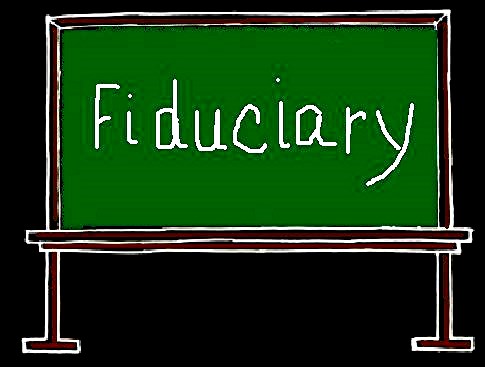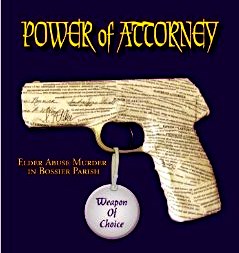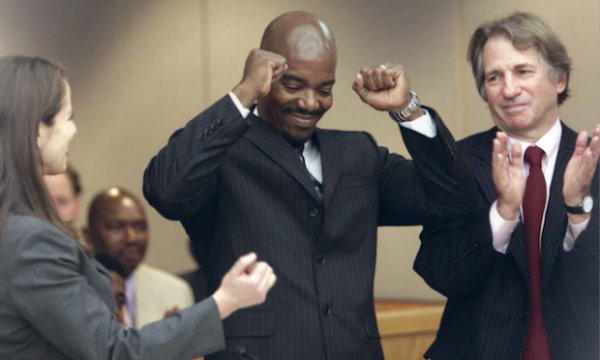The duties and potential liabilities for executor/trustees can be onerous and personally risky if not properly carried out.
It is extremely important that the testator’s choice of his or her executor be given serious consideration. The attending notary or solicitor must remember that most clients have very little understanding as to the tasks and requirements that a personal representative must perform and the responsibilities that must be assumed. The appointment of the wrong person can be a costly and emotionally draining experience for all concerned. Accordingly it is important that the will’s draftsperson investigate the desired appointment and provide prudent legal advice as to who should be chosen to be the executor and trustee. Very often that choice cannot properly be made until the attending notary or solicitor firstly enquires as to the nature of the assets and the intentions to be carried out in the will.
It is very important that the prospective personal representative be made aware of the onerous duties associated with acting in such capacity. An executor who does not wish to act, or who has not intermeddled in the estate, can renounce the appointment.
11 considerations to make before naming your executor
There are many questions that the testator should consider prior to naming his or her executor, some of which are:
(i) will the executor be willing to act;
(ii) is the executor sufficiently sophisticated to carry out the job;
(iii) is the person trustworthy;
(iv) is the person young enough or healthy enough to carry out the job;
(v) will the executor be biased;
(vi) will the executor be able to work well with the beneficiaries;
(vii) does the executor have the time to do the job;
(viii) can the executor afford to do the job;
(ix) is there any conflict of interest or potential conflict of interest;
(x) should there be more than one executor;
(xi) the distance between where the testator and the executor reside.
The nature of the client’s affairs must be thoroughly examined to determine the type of active business interests, assets in foreign jurisdictions, loans or gifts to beneficiaries and the complexity of the various personal property and investments in the estate.
Duties of a personal representative
An executor/trustee derives his or her title from the will of the deceased while an administrator on the other hand derives his or her power by appointment from the court. Whether executor, trustee or administrator, both are referred to as the personal representative of the deceased.
A personal representative has a duty to act solely and exclusively for the benefit of the beneficiaries. This duty is construed strictly and forbids a personal representative from making a profit that is not authorized or occupying a position where the personal representative’s self interests would conflict with the duty to the beneficiaries. The Courts of Equity have required personal representatives to ensure that each beneficiary receives exactly what he or she is entitled to receive under the will or the estate. The personal representative must maintain an “even hand” when dealing with all beneficiaries.
Where there is no will, section 130 of WESA sets priorities for persons applying for grants of administration. It is prudent to have each person entitled to an interest in the estate and each person with an equal or prior right to apply for letters of administration, provide written consent to the application. This eliminates the risk of competing applications and minimizes the risk of the court requiring an administrator to provide a bond or other security.
The personal representative has a duty in exercising all of his or her powers, whether discretionary or administrative, to maintain the standard of care of a reasonably prudent businessperson managing someone else’s property. Generally speaking, the personal representative cannot delegate his or her duties. The Courts in recent years however have permitted delegation of administrative duties that a reasonable and prudent businessperson would delegate in the management of his or her own business affairs. This would include the use of brokers, real estate agents, accountants, lawyers, and appraisers.
The personal representative’s general duties are as follows:
Prior to the introduction of WESA on March 31, 2014 it was far easier for the personal representative to search for and locate the last will of the deceased. There are now a large number of documents and types of information that may be relevant to what is a testamentary instrument as the will itself is not necessarily a single instrument. For example, recent court cases have held that the will may consist of a will and codicils, a will with documents incorporated by reference, or several documents which, when read together, comprise one will. Other documents might be held to be testamentary instruments pursuant to section 58 of WESA so the lawyer must ensure that the client is advised to bring any and all documents that appeared to express a testamentary intention to the lawyer for consideration.
Section 58 of WESA also states that data recorded or stored electronically may be a will or a revocation, alteration or revival of a will or stated testamentary intention so that searches of the deceased’s electronic records need to be made in case there is a document that might be determined to be such a record. Even suicide notes have been held to be valid wills while various diary extracts have also beenconsidered by the court to be testamentary in nature.
(1) To dispose of the deceased’s body.
It is the executor and not the testator’s spouse or family, who has the right to determine the place and manner of burial. Section 5 of the Cremation, Internment and Funeral Services act, SBC 2004 sets the hierarchy of persons who are entitled to control the disposition of remains. At the top of the list is the personal representative named in the will of the deceased. The right of the executor takes priority over the right of a spouse or other close relatives. If the person who has the right to control disposition is unavailable or unwilling, the right passes to the next person on the priority list. Proper funeral expenses incurred are payable out of the estate. Generally, the person who instructs the funeral director will be personally liable to pay all expenses incurred, but is entitled to indemnity as a first priority against the estate for the reasonable expenses of a suitable funeral. There are some cases where the executor has been denied reimbursement of the full funeral costs where the costs have been found to be excessive under the circumstances.
(2) Searching For and Taking Possession or Control of the Deceased’s Assets.
The personal representative must take steps to search for any cash, jewelry, and valuables and arrange for their safekeeping. Any personal property must be locked up and properly insured. Other assets that may require insurance coverage must also be checked into. Financial institutions and government agencies must be notified of the death. Mail must be re-directed and the bills, including mortgages, must be paid. Rents must be either collected or paid and businesses must be managed for the interim until distribution of the estate or until the sale of the business. A personal representative must enquire as to whether they have sufficient legal authority to carry on the business, and must also be cognizant of the potential for personal liability for carrying on the business.
Property that does not pass to the personal representative includes joint tenancy with a right of survivorship, property that will pass to a named beneficiary, such as in a pension plan, or RRSP and property held by the deceased as trustee.
(3) Complete a Schedule of all of the Deceased’s Assets and Ascertain Their Value.
After the executor has taken charge of the assets of the estate and has made a full inventory of the assets and a valuation of same, the personal representative should then arrange to have an application made to the court for the issue of a grant of probate. In the case where the deceased dies intestate or without a named beneficiary, there is often a delay experienced in finding some appropriate person to step forward and apply for letters of administration. The Rules of Court assume that in practice, in the absence of special circumstances, the court will usually give priority to appointing as administrator of the estate, the person or persons who have the greatest interest in the estate. In practice, consents will be required from any person entitled to share in the estate who has a greater or equal right to apply. Thus, if two or more persons are equally entitled to apply, they must either apply jointly, consent to the appointment of one of them or have the appointment confirmed by the Court. There is no limitation on the number of administrators who may be appointed.
(4) Advertise for Creditors.
Before any debts of the estate are paid, the executor or administrator should see to the publication of the proper advertisement for creditors, claims and other claims against the estate. From my experience, common sense should prevail in deciding whether or not to advertise for creditors as the costs can be considerable. In the case of a deceased with simple assets and a history of paying his or her bills on time, it may not be necessary to publish such an advertisement. However, if the personal representative is to protect him or herself from liability, then serious consideration should be given to the placement of such an advertisement, as provincial legislation states that the personal representative shall not be personally liable to creditors where notice has been properly given and the assets of the estate have already been distributed.
(5) To Notify Beneficiaries, Possible Beneficiaries Such as a Possible Common Law Spouse and Persons Who Would Inherit On an Intestacy With Respect to an Application For Probate or Grant of Administration;
(6) Enquiries must be made with respect to the Canada Pension plan, obtaining full particulars of any insurance on the deceased’s life, reviewing beneficiary designations, which may be revocable or a revocable, and reviewing RRSPs and RRIF’s
(7) To Ensure That Investments Are Authorized.
There is a duty to examine the assets and investments of the estate and, in general, to convert in a reasonable and timely manner, the assets that do not qualify as authorized investments for the estate. The executor must be concerned with assets that may waste (ie, an unheated greenhouse) or that are too speculative (penny stocks) or reversionary assets;
(8) To complete and file income tax returns and where necessary obtain a Clearance Certificate from Revenue Canada. Previous tax return should be reviewed in order to discover assets of the deceased and an estate tax return must be filed for the year preceding the death of the deceased.
(9) To pay the debts, including funeral, legal, testamentary expenses, succession duties and probate fees.
(10) To claim all debts due to the deceased and generally collect all of the assets that form part of the estate.
(11) To keep accounts:
One of the most important duties of the personal representative is to keep records and to be prepared to account to creditors and to persons who have a beneficial interest in the estate. The personal representative must give to anyone to whom he or she owes a duty such information as that person reasonably requires. The type and amount of information varies but the duty to account is owed to beneficiaries, unpaid legatees, unpaid creditors, successors, trustees, others who may have an interest in the deceased’s assets and others provided for by statutes such as the Public Guardian or Revenue Canada.
(12) To Investigate, Continue or Bring and Maintain Court Actions on Behalf of the Estate:
A personal representative of a deceased claimant may continue or bring and maintain an action for a loss or damage to the person or property of the deceased in the same manner and with the same rights and remedies as the deceased, except for certain actions such as libel and slander, pain and suffering and loss of expectancy of earnings.
The personal representative should remain neutral in any litigation concerning the distribution of estate assets, such as a wills variation action under section 60 WESA, and to assist the parties in determining the net amount of the estate that might be available for distribution. A personal representative, however, cannot maintain his or her own court action where he or she and the estate are on opposite sides. If that situation arises, then the personal representative must resign. The exception is that section 151 WESA now allows a beneficiary to seek leave of the court to prosecute an action without the need to replace the personal representative first.
(13) To distribute the assets in accordance with the will or the laws of intestacy.
Potential liabilities of the personal representative:
In Ketcham v Walton 2012 BCSC 175 at paragraph 10 , the court stated that the basic principle of an executor’s duty to specified potential beneficiaries of the will is neutrality. The court quoted Quirico v Pepper estate (1999) 22 BCTC 82 BCSC : “The primary duty of an executor is to preserve the assets of the estate, pay the debts and distribute the balance to the beneficiaries entitled under the will, or in accordance with any other order made under the wills variation act. An executor should not pick sides between the beneficiaries and use estate funds to finance litigation on their behalf under the former Wills Variation act ( now Section 60 WESA). It is a matter of indifference to the executor as to how the estate should be divided.. He or she need only comply with the terms of the will or any variation of it made by the court.”
14. Debts and Liabilities
A personal representative may be personally liable for the debts of the deceased to the extent of assets coming into the hands of the personal representative. It is therefore extremely important that the debts are properly listed and valued in the inventory of assets and liabilities. Particular care must be given to not distribute the assets to beneficiaries until either a clearance certificate has been issued by the federal tax authorities or more than sufficient assets have been held back from any interim distribution, so that the taxes can be paid. Failure to pay federal and provincial taxes can result in personal liability for the personal representative. Personal representatives are strongly encouraged to use the expertise of a tax accountant, so as to determine capital gains and losses for income tax purposes, to calculate foreign taxes, and to determine what property tax if any, is payable. This list is not exhaustive.
Valuations may often be difficult and complex and again, the personal representative should use a professional appraiser, qualified accountant or other expert for determining such valuations.
15. Failure To Keep Accounts
A trustee has an obligation to keep proper accounts, including a complete record of his or her activities and be in a position at all times to prove that he or she administered the trust prudently and honestly. He or she must have the accounts ready to give full information whenever required- Sandford v Porter (1889) OJ No.43, 16 OAR 565 (CA)
A trustee who fails to retain receipts supporting substantial cash withdrawals of expenses charged against an estate has not adequately carried out his or her duties and may be held personally liable for the unsubstantiated withdrawals.
If a trustee has mixed his or her own funds with the funds being held for another, all of the property must be taken to be the other’s property until the trustee is able to prove what part of it is his or her own Norman estate (1951) OJ 501 CA.
The trustee, not the beneficiaries bears the onus of establishing that the management and disbursement of funds is consistent with the terms of the trust.
16. Using Trust Assets For Personal Gain
It is a basic principle of trust law that a trustee is not entitled to use the trust property for his or her own personal benefit. If the trustee cannot account for or explain disbursements or expenses charged against a trust, he or she is personally liable to the trust for those disbursements and expenses.
A trustee who improperly enjoys the benefit of trust assets without authority and allows non-beneficiaries, such as his family, to also benefit is liable to the trust for the amounts of the value of the benefits received -Langston v Landen 2008 ONCA 321
17. Improper Delegation to Third Parties and improper Charging of Fees
There is authority for the proposition that the fees paid by a trustee in respect of the preparation of accounts must be borne by the trustee and deducted from the amount of compensation payable Eisenstat Estate v O’Hara (1995) OJ 548.
There is also authority for the proposition that where the trustee delegates the care and management of a trust to a professional, the professional fees incurred by the trust are deducted from the compensation paid to the trustee . Holt Estate (1994) 2ETR (2d) 163
18. Reckless and Unreasonable Behavior
An executor/trustee may be personally liable for costs for reckless and unreasonable behavior that amounts to reprehensible conduct for the opposing plaintiff’s action for no other reason than to frustrate the plaintiff’s claim. From my experience this typically arises between competing siblings Craven v Osdacz 2017 ONSC 4396.
19. Losses Due to Actions or Inactions
If an estate suffers any losses as a result of an executor/trustee’s actions or inactions such as failure to rent real property, the executor is obliged to repay the estate for such losses with interest. Re Sangha 2018 BCSC 54. An executor/trustee may be personally liable for interest lost to the estate for failing to invest estate assets. Re Proniuk 1984 CarswellAlta 285.
20. Conflicts of Interest
Moffat v Weststein (1996) 29 O.R. (3d) 371 canvassed the duty of an executor/trustee to avoid conflicts of interest, and at page 390 stated ” subsumed in the fiduciary’s duties of good faith and loyalty is the duty to avoid a conflict of interest. The fiduciary must not only avoided direct conflict of interest, but also must avoid the appearance of a potential or possible conflict. The fiduciary is barred from dividing loyalties between competing interests, including self-interest.
21. Improper Investments
Executors/trustees are only authorized to make investments of estate assets as provided for under the Trustee Act and must not invest any estate assets in speculative or risky types of investments. They must undertake their responsibilities with the ordinary care and prudence of a reasonable investor Stranger v Royal trust Co (1947) 1 WWR 538 and may be found personally liable for losses incurred by the estate for improper investments.
22. Failure to Pay Income Taxes
Under the Income Tax act an executor trustee will be personally liable for any unpaid taxes, interest and penalties that may be payable by an estate if the assets are distributed before obtaining a clearance certificate from the Canada Revenue Agency certifying that all taxes, interest and penalties have been assessed and paid. As such, it is crucial for the personal representative to obtain tax advice from a properly qualified accountant and to withhold substantial monies to ensure sufficient funds to pay taxes, in the event that an interim distribution is made to the beneficiaries.
Conclusion
The duties and liabilities of a personal representative set out in this article are not exhaustive but do give an indication as to the number of factors to not only decide whether a person should be appointed to act as the personal representative, or alternatively agreed to act as the personal representative due to the onerous tasks and potential liabilities that can be imposed on an executor/ trustee.
A personal representative should always retain an estate lawyer and accountant for the purpose of handling the rigours of carrying out the duties imposed by the office of being a personal representative and avoiding the serious liabilities that can be personally imposed on him or her for improperly carrying out the duties associated with such a fiduciary duty.










